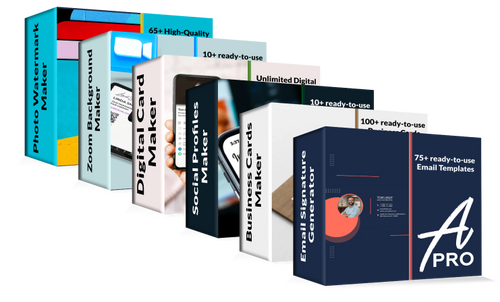Imaginez un monde où vos efforts marketing sont non seulement plus efficaces mais aussi plus efficaces : c'est le pouvoir de l'intelligence artificielle. Alors que l'IA continue de remodeler les industries, son application au marketing ouvre des opportunités sans précédent pour les entreprises de toutes tailles. L'IA révolutionne le secteur du marketing en automatisant les tâches banales et en offrant des expériences client personnalisées. Cet article fournit un guide étape par étape pour intégrer l'IA dans votre stratégie marketing, en offrant des informations et des outils qui inspireront confiance et favoriseront le succès. Que vous soyez un fondateur de startup ou un spécialiste du marketing chevronné, préparez-vous à vous lancer dans un voyage qui redéfinira votre approche marketing.
Pourquoi l’IA est-elle importante pour le marketing ?
L’IA est essentielle au marketing, car elle permet aux entreprises de fonctionner avec une précision et une efficacité sans précédent, transformant ainsi leur façon d’interagir avec les clients et d’optimiser leurs stratégies. En exploitant l’IA, les spécialistes du marketing peuvent analyser de vastes quantités de données pour obtenir des informations approfondies sur le comportement des consommateurs, ce qui leur permet de créer des campagnes hautement personnalisées et ciblées qui correspondent aux préférences de chacun. Les outils basés sur l’IA automatisent les tâches répétitives , libérant ainsi un temps précieux pour les efforts créatifs et stratégiques, tout en améliorant la prise de décision grâce à l’analyse prédictive et au traitement des données en temps réel. Cela améliore non seulement l’expérience client, mais maximise également le retour sur investissement en garantissant que les efforts marketing sont à la fois efficaces et économes en ressources. Alors que le paysage numérique continue d’évoluer, l’IA s’impose comme un allié essentiel pour naviguer dans les complexités du marketing moderne, offrant un avantage concurrentiel à ceux qui adoptent ses capacités.
Qui peut bénéficier de l’utilisation de l’IA pour le marketing ?
- Propriétaires de petites entreprises et entrepreneurs : l’IA offre des solutions rentables pour améliorer les stratégies marketing, permettant aux petites entreprises de rivaliser avec les grandes entreprises en automatisant les tâches, en personnalisant les interactions avec les clients et en optimisant l’allocation des ressources.
- Professionnels du marketing : les spécialistes du marketing numérique, les stratèges de contenu et les spécialistes du marketing de performance peuvent améliorer leurs campagnes avec des outils d'IA qui fournissent des informations basées sur les données, automatisent les processus et améliorent le retour sur investissement grâce à des efforts marketing ciblés et efficaces.
- Gestionnaires de médias sociaux : l'IA permet d'automatiser les calendriers de publication, de générer du contenu attrayant et d'analyser l'engagement du public, permettant aux gestionnaires de médias sociaux d'identifier les tendances et d'adapter le contenu à des segments d'audience spécifiques pour un impact maximal.
- Propriétaires d'entreprises de commerce électronique : les opérateurs de boutiques en ligne peuvent exploiter l'IA pour des recommandations de produits personnalisées, le marketing par e-mail automatisé et la segmentation des clients, ainsi que pour mettre en œuvre des chatbots IA pour améliorer le support client et stimuler les ventes.
- Créateurs de contenu et freelances : les blogueurs, les YouTubeurs et les freelances peuvent utiliser l'IA pour l'optimisation du référencement, l'idéation de contenu et l'offre de services basés sur l'IA aux clients, élargissant ainsi leur portée et améliorant la qualité et l'efficacité de leur travail.
Comment utiliser l'IA pour le marketing : Pas à pas
Étape 1 : Définissez vos objectifs marketing
Avant de vous lancer dans les outils d'IA, il est essentiel de bien comprendre vos objectifs marketing. Vous cherchez à accroître la notoriété de votre marque, à stimuler vos ventes ou à améliorer l'engagement client ? Définir vos objectifs vous aidera à choisir les solutions d'IA adaptées à vos besoins spécifiques. En définissant des objectifs mesurables, vous pouvez suivre efficacement les progrès et évaluer le succès de vos stratégies marketing basées sur l'IA.
Étape 2 : Identifier les bons outils d’IA
Une fois vos objectifs définis, l’étape suivante consiste à identifier les outils d’IA, tels que ChatGPT, qui correspondent à vos objectifs. Il existe un large éventail de technologies d’IA disponibles, des chatbots et des analyses prédictives aux outils de création de contenu et d’automatisation des médias sociaux. Recherchez et sélectionnez les outils qui correspondent le mieux à votre modèle commercial et à vos besoins marketing . Tenez compte de facteurs tels que la facilité d’utilisation, les capacités d’intégration et la rentabilité pour garantir une mise en œuvre transparente.
Étape 3 : Collecter et analyser les données
L'IA se nourrit de données, ce qui rend indispensable la collecte et l'analyse d'informations pertinentes sur vos clients et les tendances du marché. Utilisez des outils d'analyse basés sur l'IA, notamment le traitement du langage naturel, pour traiter et interpréter les données, et découvrir des informations précieuses sur le comportement et les préférences des consommateurs. Cette approche basée sur les données vous permet de prendre des décisions éclairées, d'adapter vos stratégies marketing et de proposer des expériences personnalisées qui trouvent un écho auprès de votre public.
Étape 4 : Mettre en œuvre des solutions d’IA
Avec les bons outils et les bonnes données en main, il est temps d'intégrer des solutions d'IA dans vos processus marketing. Commencez par automatiser les tâches répétitives telles que le marketing par e-mail, la publication sur les réseaux sociaux et les demandes de service client. Cela permet non seulement d'augmenter l'efficacité, mais aussi de libérer du temps pour que votre équipe puisse se concentrer sur des initiatives stratégiques. Assurez-vous que vos systèmes d'IA s'intègrent parfaitement aux plateformes existantes pour maximiser leur efficacité.
Étape 5 : Surveiller et optimiser les performances
La mise en œuvre de l’IA n’est pas une tâche ponctuelle ; elle nécessite une surveillance et une optimisation continues. Évaluez régulièrement les performances de vos efforts marketing basés sur l’IA à l’aide de tableaux de bord d’analyse et d’indicateurs de performance. Identifiez les domaines à améliorer et effectuez les ajustements nécessaires pour améliorer les résultats. En restant proactif et adaptatif, vous pouvez vous assurer que vos stratégies d’IA restent alignées sur l’évolution de vos objectifs commerciaux et de la dynamique du marché.
Étape 6 : Restez informé et innovez
Le domaine de l'IA évolue rapidement, avec l'apparition régulière de nouvelles technologies et applications. Tenez-vous au courant des dernières tendances et innovations en matière de marketing de l'IA pour conserver un avantage concurrentiel. Assistez à des conférences sectorielles, participez à des webinaires et échangez avec les communautés de l'IA pour élargir vos connaissances et explorer de nouvelles opportunités. En favorisant une culture de l'innovation, vous pouvez continuellement affiner vos stratégies marketing et favoriser une croissance durable.
Le marketing basé sur l’IA fonctionne-t-il ?
Oui, le marketing par l’IA est très efficace et s’est avéré être une force transformatrice dans le secteur. En exploitant les technologies de l’IA, les entreprises peuvent atteindre une précision et une efficacité remarquables dans leurs efforts marketing. La capacité de l’IA à effectuer des analyses de données sur de vastes ensembles de données permet aux spécialistes du marketing d’obtenir des informations approfondies sur le comportement des consommateurs, ce qui leur permet de créer des campagnes personnalisées et ciblées qui correspondent aux préférences individuelles. Cela conduit à un meilleur engagement client, à des taux de conversion plus élevés et à une fidélité accrue à la marque. De plus, l’IA automatise les tâches répétitives, libérant ainsi un temps précieux pour les initiatives créatives et stratégiques, tandis que les analyses prédictives permettent d’anticiper les tendances du marché et les besoins des consommateurs. Le résultat est une stratégie marketing plus agile et plus réactive qui non seulement améliore l’expérience client, mais maximise également le retour sur investissement. À mesure que l’IA continue d’évoluer, son rôle dans le marketing ne fera que croître, offrant aux entreprises un avantage concurrentiel dans un monde de plus en plus numérique.
Tous les algorithmes acceptent-ils le marketing de l’IA ?
Tous les algorithmes ne sont pas conçus pour accepter ou s’intégrer parfaitement aux stratégies marketing basées sur l’IA, car leur compatibilité dépend en grande partie de l’ architecture et de l’objectif spécifiques de l’algorithme en question . Si de nombreux algorithmes modernes sont conçus dans un souci d’adaptabilité et d’intégration, en particulier ceux utilisés dans les plateformes de marketing numérique, certains systèmes existants peuvent ne pas être aussi réceptifs aux améliorations de l’IA sans modifications importantes. En outre, l’efficacité du marketing basé sur l’IA dépend de la qualité et de la pertinence des données introduites dans ces algorithmes, ainsi que de la sophistication des modèles d’IA utilisés. Les entreprises doivent évaluer leur infrastructure technologique existante et s’assurer que leurs algorithmes peuvent exploiter efficacement les capacités de l’IA. Cela peut impliquer de mettre à jour les systèmes, d’investir dans de nouvelles technologies ou de collaborer avec des spécialistes de l’IA pour optimiser l’intégration. À mesure que l’IA continue de progresser, de plus en plus d’algorithmes sont développés pour être intrinsèquement compatibles avec le marketing basé sur l’IA, mais une approche réfléchie est nécessaire pour garantir une mise en œuvre transparente et efficace.
Où l’IA peut-elle être appliquée au marketing ?
- Segmentation de la clientèle : l'IA peut analyser les données client pour identifier des segments distincts en fonction du comportement, des préférences et des données démographiques, permettant aux spécialistes du marketing d'adapter les campagnes et les offres à des groupes spécifiques pour un ciblage plus efficace.
- Création et optimisation de contenu : les outils d'IA peuvent générer des idées de contenu, aider à la rédaction et optimiser le contenu pour le référencement, garantissant que les supports marketing sont attrayants, pertinents et facilement découvrables par les publics cibles.
- Analyse prédictive : en analysant les données historiques, l’IA peut prévoir les tendances futures et les comportements des consommateurs, permettant aux spécialistes du marketing d’anticiper les besoins, d’optimiser les stocks et de planifier des stratégies marketing proactives.
- Marketing personnalisé : l’IA permet de proposer des expériences hautement personnalisées grâce à du contenu dynamique, des recommandations de produits et des messages ciblés, améliorant ainsi la satisfaction et la fidélité des clients.
- Assistance client et chatbots : les chatbots basés sur l'IA fournissent une assistance client instantanée, 24h/24 et 7j/7, traitant les demandes et résolvant les problèmes de manière efficace, ce qui améliore le service client et libère les ressources humaines pour des tâches plus complexes.
Comment puis-je utiliser l’IA pour les campagnes de marketing de personnalisation ?
L’utilisation de l’IA pour la personnalisation des campagnes marketing implique de tirer parti d’analyses de données avancées et d’algorithmes d’apprentissage automatique pour adapter le contenu et les interactions aux préférences et aux comportements individuels des clients. En analysant les données client telles que l’historique de navigation, les habitudes d’achat et les mesures d’engagement, l’IA peut identifier des segments de clientèle uniques et prédire les comportements futurs. Cela permet aux spécialistes du marketing de proposer des expériences hautement personnalisées, telles que des recommandations de produits personnalisées, des campagnes par e-mail ciblées et un contenu de site Web dynamique qui s’adapte en temps réel aux interactions des utilisateurs. La personnalisation pilotée par l’IA améliore non seulement la satisfaction client en fournissant un contenu pertinent et opportun, mais augmente également les taux de conversion et la fidélité à la marque en permettant aux clients de se sentir compris et valorisés. En apprenant continuellement à partir de nouvelles données, les systèmes d’IA peuvent affiner les stratégies de personnalisation au fil du temps, garantissant que les efforts marketing restent efficaces et alignés sur l’évolution des attentes des clients.
Quel est l’avenir de l’IA et du marketing ?
L’avenir de l’IA et du marketing est sur le point d’être transformateur, car les technologies d’IA continuent d’évoluer et de s’intégrer de plus en plus profondément dans les stratégies marketing. Nous pouvons nous attendre à ce que l’IA génère des niveaux de personnalisation encore plus élevés, avec des campagnes hyper ciblées qui anticipent les besoins et les préférences des clients avec une précision remarquable. L’utilisation de l’IA dans l’analyse prédictive deviendra plus sophistiquée, permettant aux spécialistes du marketing de prévoir les tendances et les comportements des consommateurs avec une précision sans précédent. En outre, l’IA automatisera et optimisera davantage les processus marketing, de la création de contenu au service client, permettant aux spécialistes du marketing de se concentrer sur l’innovation stratégique et les efforts créatifs. À mesure que la technologie de l’IA deviendra plus accessible, les entreprises de toutes tailles pourront exploiter sa puissance, uniformisant les règles du jeu et favorisant un paysage de marché plus compétitif. En fin de compte, l’IA améliorera non seulement l’efficacité des efforts marketing, mais redéfinira également la manière dont les marques se connectent à leur public, créant des expériences client plus significatives et engageantes.
Conclusion
En conclusion, l’intégration de l’IA dans les stratégies marketing représente un changement monumental dans la façon dont les entreprises se connectent à leur public et stimulent la croissance. En adoptant l’IA, les spécialistes du marketing peuvent atteindre de nouveaux niveaux d’efficacité, de personnalisation et de perspicacité, transformant leurs campagnes en efforts dynamiques, axés sur les données, qui trouvent un écho plus profond auprès des consommateurs. De l’automatisation des tâches de routine à la fourniture d’expériences personnalisées, l’IA permet aux entreprises non seulement de répondre aux attentes des clients, mais de les dépasser, en favorisant la fidélité et en améliorant la valeur de la marque. À mesure que la technologie de l’IA continue de progresser, son rôle dans le marketing ne fera que s’étendre, offrant des solutions et des opportunités innovantes aux entreprises pour prospérer dans un paysage numérique de plus en plus compétitif. En restant informés et adaptables, les spécialistes du marketing peuvent exploiter tout le potentiel de l’IA, en s’assurant que leurs stratégies restent à la pointe et efficaces. L’avenir du marketing est prometteur et l’IA est à l’avant-garde de cette évolution passionnante, prête à propulser les entreprises vers un succès sans précédent.
Réflexions finales
Êtes-vous prêt à renforcer la présence de votre marque grâce à la puissance du marketing piloté par l'IA ? Chez Artlogo , nous sommes spécialisés dans la création d'éléments de marque conçus par des experts qui garantissent que votre entreprise se démarque. Des signatures manuscrites élégantes aux cartes de visite sophistiquées et aux icônes de réseaux sociaux accrocheuses , nos designs sont conçus pour captiver et laisser une impression durable. Découvrez la différence Artlogo et voyez comment nous pouvons vous aider à avoir un impact significatif dans le secteur juridique aujourd'hui.
Sources






























Partager avec :